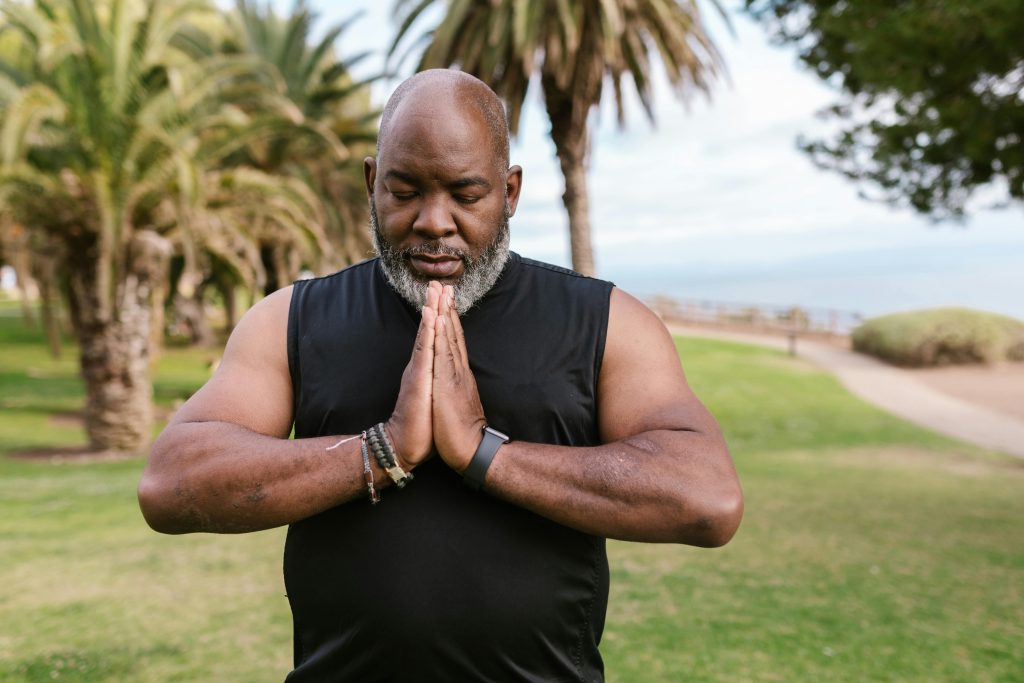by Sebastian Castro
“Black men have a 67% higher prostate cancer incidence rate compared to white men and are more than twice as likely to die from the disease,” says the American Cancer Society.
Tony Hillery is a longtime member of the Harlem community. He remembered the day he was diagnosed with prostate cancer.
“When they came in and told me I was positive, I said ‘no, I think you’re mistaken,’” Hillery said. “Everything went blank. I saw their mouth moving, but I didn’t hear what they were saying.”
Hillery was born in Wiesbaden, Germany, to a Tuskegee Airman and Air Force Major for a father. He grew up all around the world before settling in New York as a businessman. After the 2008 financial crisis, he decided to take time to volunteer in Harlem public schools, where he quickly became an integral part of the neighborhood. It was also when he learned just how difficult it was for kids in the community to be conscious of their health.
“That’s where it slaps you in the face; the disparity in everything from education to health to wellness,” Hillery said.
According to Hillery, many of these children were living in homeless shelters; “their idea of eating healthy was diet coke.”
Hillery lamented the concentration of fast-food restaurants in their community, and lack of healthier options. Harlem residents were fighting an uphill battle.
“You eat this bad food every day, you’re gonna get sick,” Hillery said.
Hillery also recognizes that these issues were not unique to Harlem or the Black community.
“It’s really poverty what we fight here,” Hillery said.
Across the street from the school Hillery volunteered at was an abandoned lot the kids called the haunted garden. He made it his mission to clean it up with the help of student volunteers. Once they did, one of the kids suggested planting food. That’s when Harlem Grown was born.
Harlem Grown is an independent non-profit founded by Hillery with a mission to “Inspire youth to lead healthy and ambitious lives.” Harlem Grown went from producing 38 pounds of food in their first year to having 14 lots, all producing food, all of them going to the community.
As Harlem Grown expanded its reach, Hillery went on his own health journey. He became vegan and began exercising four times a week, losing around 50 pounds. He was as healthy as he had ever been when he was diagnosed with cancer.
“It’s a silent thing if you don’t have any blaring symptoms,” Hillery said. “I had none. That’s the scary part.”
Despite his healthy lifestyle, Hillery was still diagnosed. He stressed how important it is to stay proactive when it comes to health and ruminates on challenges Black men may face when dealing with their wellbeing, especially the stigma associated with open discussions about such sensitive topics.
“It’s almost a taboo subject in our community,” Hillery said. “We sit in barbershops; we talk about everything in the world except our health.”
Hillery credits much of his recovery to Dr. Ash Terwari. He recalled the first night after his surgery, staying awake in the hospital bed, unable to sleep. He texted every man in his phone, urging them to get checked.
“It is so important to be preemptive in our health,” Hillery said.
Out of the many who did get checked, seven tested positive. Hillery said he’s glad he’s been able to raise awareness for the issue.
“It’s not getting it; it’s being aware of it and getting it out and treating it,” Hillery said.
Hillery also reflected on more institutional barriers preventing Black men from receiving treatment, both financially, and historically. He acknowledged the deeply embedded mistrust of the medical community, born from years of medical malpractice rooted in racism.
“We have every reason to be skeptical of the medicine,” Hillery said. “At the same time, you’re talking about your health.”
“You go where you’re comfortable,” Hillery said. He urged members of his community to do their best to overcome their suspicions to avoid “dying that horrible, painful, drawn-out death.”
Hillery acknowledged his privilege in being self-employed. He sympathized with the unjust and harsh restrictions placed on those having to balance work and health, especially amidst a cancer diagnosis.
“I couldn’t imagine having to rush back to work after the first two or three weeks,” Hillery said. “I couldn’t even imagine, but I know some people have to do that.”
Hillery urged all men to get checked, encouraging them to overcome any stigma associated with the process.
“It’s all right in front of us, but people don’t broach it,” Hillery said. “Awareness is everything.”
“Words don’t kill you. Prostate cancer can. Have a conversation.”


Cracked tubes? Clogged drains? Leaking valves? Refrain allow drainage disasters spoil the evening! This qualified squad from Company Name] exists present to protect your dwelling with swift, consistent, alongside cost-effective immediate pipework repairs. Open anytime, our crew handle all problem—significant with small—through top-notch competence as well as care. With waterlogged subfloors to malfunctioning water appliances, we’ve got got homeowners solved. Dial us now plus enable us restore every tranquility for soul through rapid, skilled repairs. Every home needs the top—trust our crew for mend it flawlessly the earliest moment!
Call right now – 8338561951, USA